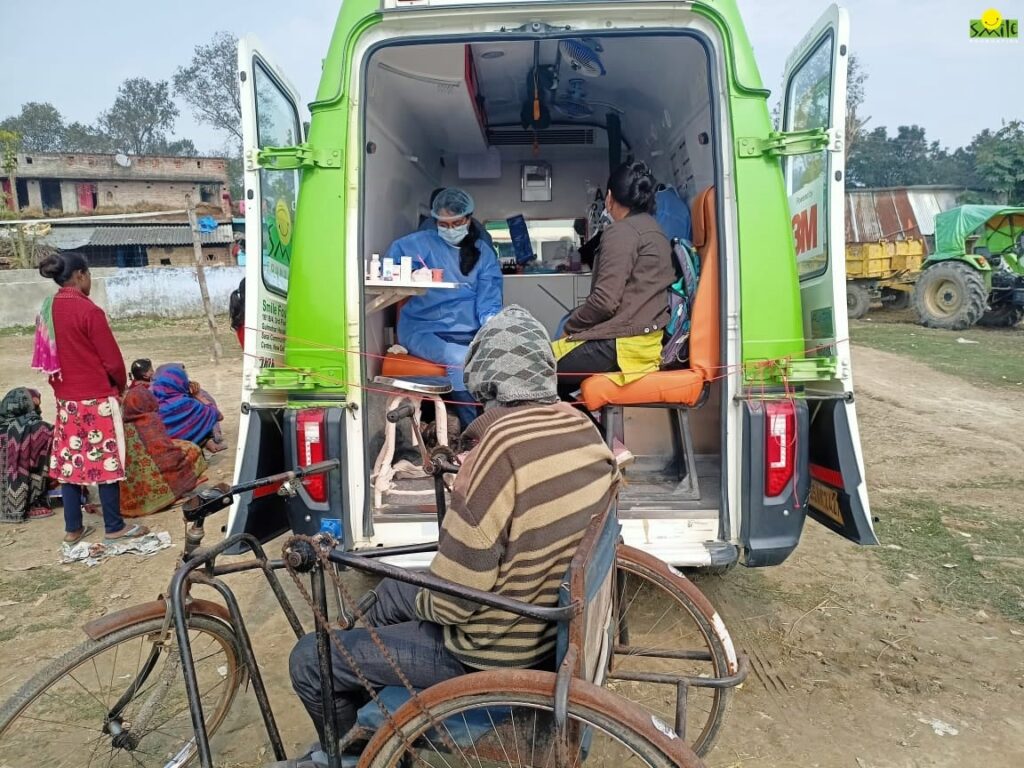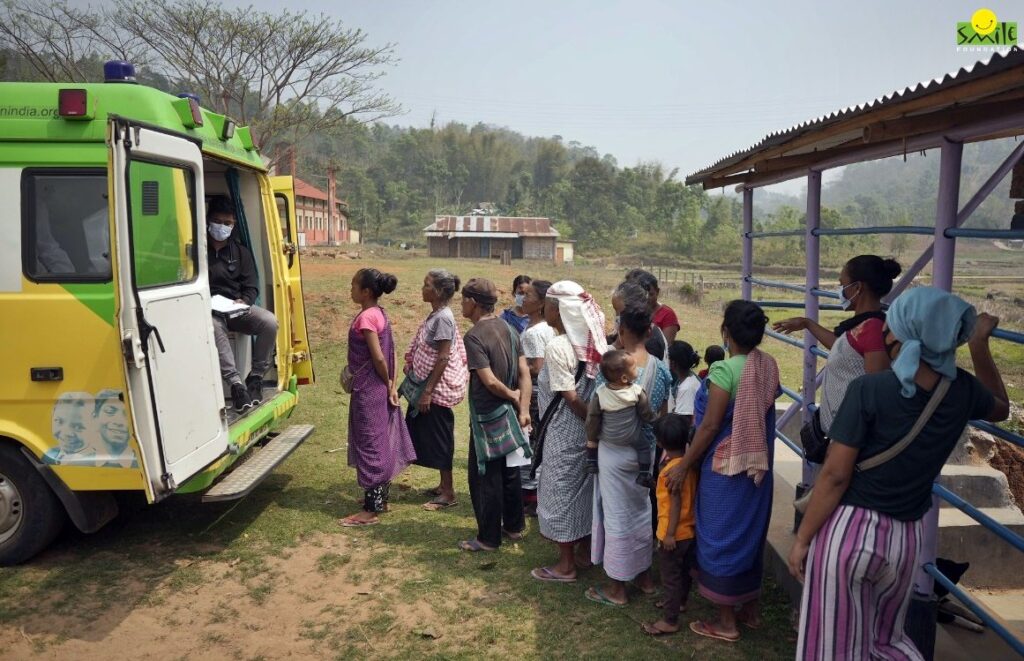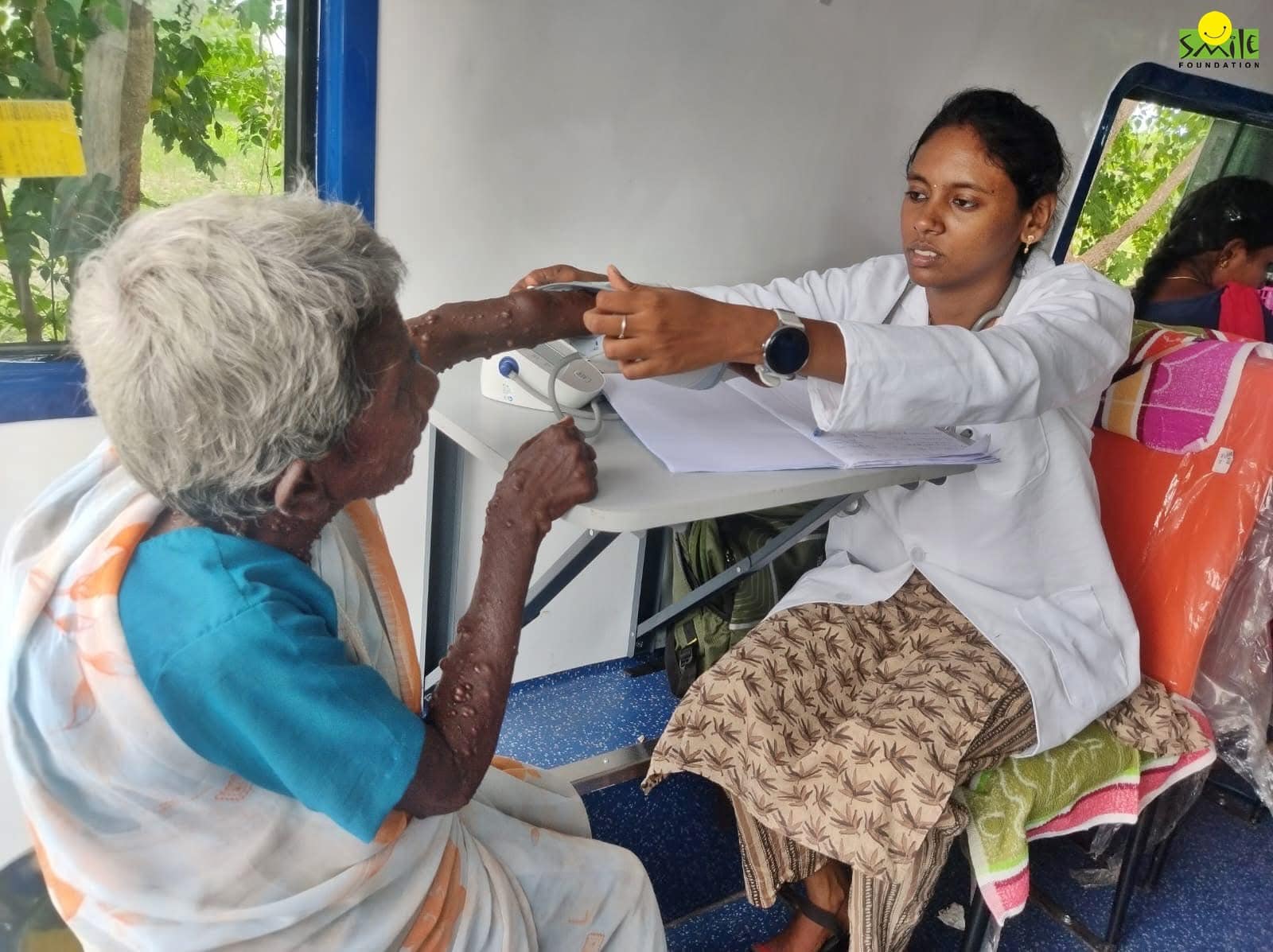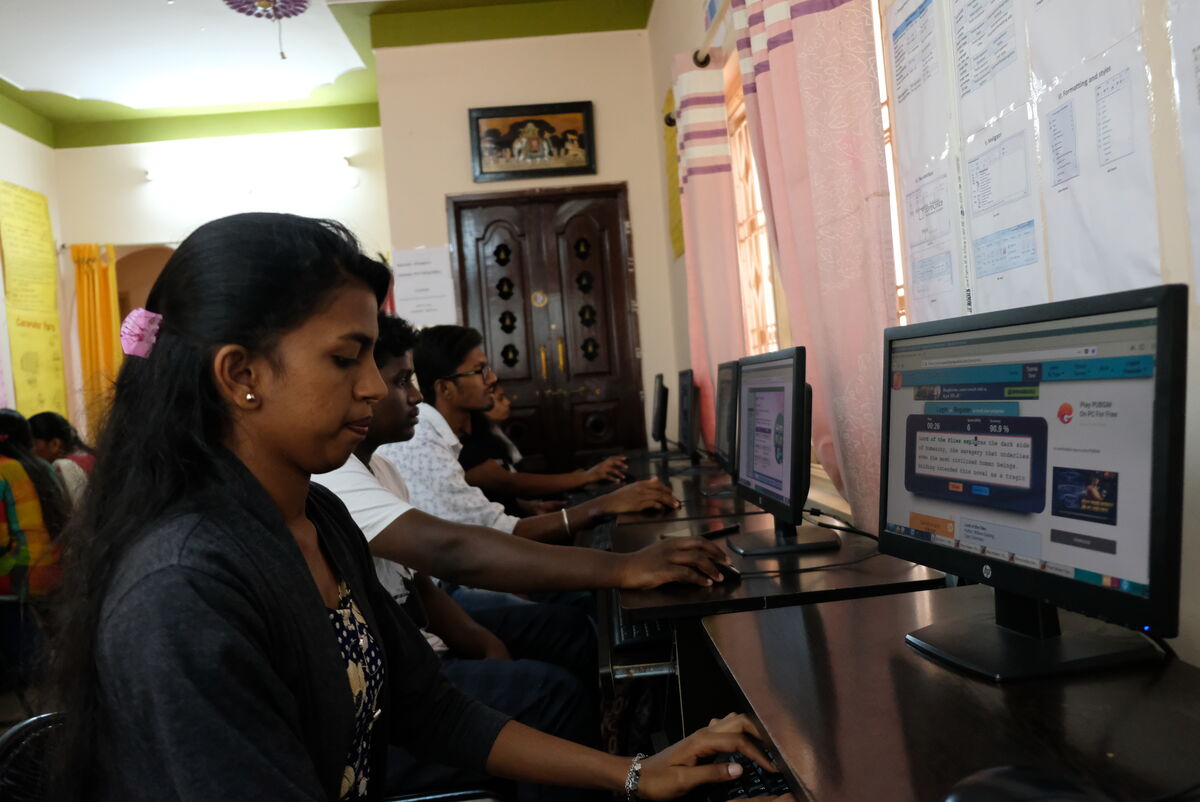Healthcare in India is highly underfunded. The government spend on healthcare is a little over 1% of the gross domestic product – among the lowest in the world. In fact, a study found that 60 million Indians are pushed into poverty every year due to high expenditure on healthcare. This problem of lack of access to healthcare disproportionately affects certain communities. People living in rural areas and urban slums also continue to face deplorable healthcare conditions. The lack of education and awareness and lack of mobility to healthcare facilities are two of the biggest contributors to this.
To improve this scenario, numerous government-funded health insurance schemes have been implemented such as Rashtriya Swasthya Bima Yojana, or RSBY. Launched in 2008, this initiative is aimed at reducing financial catastrophe and vulnerability of lower-income persons. As of 2016, some 41 million families were enrolled in RSBY. However, evidence indicates that the programme has not led to any reduction in out-of-pocket expenditure–personal spending–by the beneficiaries. India’s health-related out-of-pocket expenditure, which pushes families into indebtedness and deeper poverty, is among the world’s highest. In a low-middle income group of 50 nations, Indians ranked sixth among the biggest out-of-pocket health spenders in 2014. Further systemic barriers to access include long wait times in hospitals, the perceived low quality of public health services, and substantial workforce and infrastructure shortfalls.
Travelling to and from healthcare facilities is hard to afford for people from lower economic backgrounds. If they do get to the facility and meet the doctor, purchasing medication and sometimes running scans/tests are out of the question, even in government hospitals. The covid-19 pandemic has further highlighted the daily struggles of the rural population, urban slum dwellers and low-income people. It brought to our attention the medication, doctors and healthcare facility shortages we face.

To help these families and improve the healthcare crisis in India, Smile Foundation has introduced the Smile on Wheels initiative. Smile on Wheels is a mobile healthcare service that provides underprivileged families with free healthcare at their doorstep along with healthcare awareness and education, with special focus on women and children. It seeks to treat patients at the primary level of intervention, diagnose the illness, educate the patient, and begin treatment before the condition or disease worsens or progresses to the point of becoming dangerous or terminal. Mobile hospital units equipped with medical knowledge, services, and medications travel over deserts, forests, mountainous terrain, and cities to deliver inexpensive and efficient healthcare to areas where it was previously unavailable.
Smile on Wheels encourages equipping the local people with skills and awareness to successfully address health challenges at the village and block levels. It works on activating the VHSC (Village Health and Sanitation Committee) and involving the major stakeholders in various community healthcare concerns. The programme focuses on women and leverages their power to be change agents in areas such as sanitation, personal hygiene, and waste management, among others, so that the community as a whole may grow and thrive. It also regularly offers stakeholder capacity building for government and frontline health care workers such as ASHA and Anganwadi. To know more about the programme, visit https://www.smilefoundationindia.org/smile_on_wheels.html
Reference Links:
https://www.commonwealthfund.org/international-health-policy-center/countries/india
http://data.worldbank.org/indicator/SH.XPD.OOPC.ZS
https://thewire.in/government/india-national-health-insurance-failed-poor









